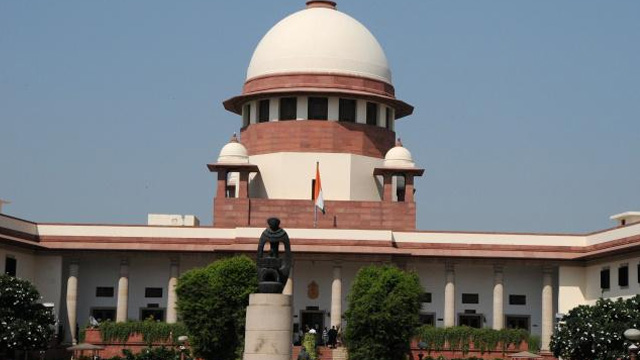When we look around or take a peek inside the college campuses and youth corners, we realise that the number of teens and young adults indulging in drugs and drug abuse, is growing.
For the kind of succour, escape or the euphoria they are said to provide, “drugs” is not a misnomer anymore, even in a traditionally and culturally driven country like India.
But the question arises, as much we are worried about the drug use and abuse in the country, are we opening enough avenues for our young brigade to get educated about drugs? Right from the beginning per se! Do the teachers have another important job on hand, apart from regular teaching?
In the developed nations like USA, drug education is a norm. The education experts and teachers emphasize that targeted, age-appropriate elementary school drug education is essential to edify the students against the hazards of drug usage and addiction. The major threat being posed by the easy access to the entire world, handed over to the teens, through the web and technology, which has made communication handy and is definitely being used for legitimate and illegitimate reasons.
Indian Picture
Coming to the Indian scenario, it transpires that drug consumption in India has become more of a social symbol. Popular media has played a significant role in glorifying the use of various narcotics and abusive substances. For a large percentage of youth, It is now “cool” to abuse prohibited materials.
Teens pick up on these trends easily, sometimes, merely to “fit in”, without considering the harsh consequences. Schools and colleges in India must envisage the threat that lingers at their gates. Turning a blind eye towards this issue may cripple the future of an otherwise brilliant brigade that we are relying on, for an illuminated future.
The History – The Failures
It’s not that the oven was fire-less till now. There have been the sparkles and the fire too. There is a long history of well meaning, but ill advised, drug education programmes that have attempted to stop young people using drugs. They have failed miserably. In the past, many drug education programmes have been more in the realm of propaganda than education. Campaigns, anti-drug crusades, one-dimensional messages and sloganeering have been prominent. Not to forget the political schema attached to them. Which, in all dim dexterity, are destined to fail for the obvious reasons.
Drug Education Marred By Politics, Propaganda And Censorship – The Real Life Stories That Is
Underlying assumptions of drug use and abuse on which primary preventive teachings are based, are all flawed. Evaluation studies show it to be ineffective and that it is more about propaganda than education. Many advocates of primary prevention are either ignorant about the research evidence or appear to know about it yet ignore it for political reasons.
Below are a few real life examples of the way the authorities either ignore or censor the evidence.
The Department for Education (DFE) launched a drug education initiative with the slogan ‘Drug Proof’. Such slogans may be politically popular, but they are clearly unrealistic and doomed to failure. The DFE has also run a series of regional conferences at which the work of DARE and Life Education was actively endorsed, speaker presentations were censored and harm reduction approaches were deliberately excluded. It has censored ‘politically unacceptable aspects of the SCAA guidance on drug education for schools (1995) against the advice of the expert consultants and advisory group they employed on the task. This included changing the words “drug use” to ‘drug abuse” and omitting references to the benefits of drug use, understanding the role of drugs in the society, history of drug use, social and cultural uses of drugs, why young people use drugs and challenging stereotypes and myths.
It also deliberately omitted some best selling drug education resources from the listings in its ‘Digest Of Drug Education Resources for Schools’ because they took a harm reduction approach even though the introduction to the digest stresses that none of the resources included are ‘recommended or endorsed’.
Ignore it or censor it seems to be the order of the day when it comes to making information and research evidence available to teachers and other drug education practitioners.
This very much reflects the practice of much past drug education in educational institutions and that through the media whereby the information given to young people is also doctored.
Dishonesty should have no place in education.
Drug Education – How And When
Now, when we have identified that drugs are one of the primary reasons for failure in teens and young adults, which lead to addiction, depression and suicide, shouldn’t Indian educational institutions introduce effective drug education, along with sex and alcohol education? We all know that “Awareness is Imperative”, but how do we crack the shells that we so conveniently build around the younger lot, in the illusions of the ongoing taboos?
Talking about it informally, is what could be a positive step to avoid, or let’s say, reduce the chances of youth taking drugs. Young teens, whose parents talk early and often about the dangers of alcohol, tobacco and drug use, are 50 percent less likely to succumb to alcohol, abuse and drugs. If schools and other educational institutions were to adopt similar measures, the percentage of children who are less likely to use drugs, tobacco or alcohol may increase.
Yet, as I can see it, drug education in schools can be structured, informative, and educational. A range of methods can be applied by the elementary and high school teachers to raise awareness about drugs and their potential damages.
- Creating project-based or art-based activities for elementary school children can be employed. Graphics, information, group counselling and social work for high school children acts as a theoretical and experiential knowledge for them.
- When the youth is hooked to media and digitisation, electronic information, videos and images that show the causes and effects of drugs and alcohol can raise awareness and help youth to make better life choices.
- Indian schools ought to impart imperative information about the repercussions of drug use or drug dealing, types of drugs, and their effect on health and laws that revolve around drug use and drug dealing.
- Regular elementary educational institutions can also involve parents in the awareness activities and give them guidelines for talking about alcohol and drug use.
It’s about time, we give up on apprehensions and inhibitions and start acting more mature and in an evolved manner, as per the call of the hour.
Workable Approaches To Drug Education
Most past drug education programmes have tried to dissuade young people from using drugs. This is called primary prevention and has been attempted using a number of different approaches which came across as workable to a larger extent.
In rough chronological order, these have been:
1 . The shock/ scare approach as exemplified in hard hitting anti-drug videos, talks by ex-junkies or some government TV and billboard campaigns that focus on the horrors of drug use
- The information approach where young people are given the ‘facts’ about drugs (and especially the dangers) on the assumption that if they knew the ‘facts’ they would not use drugs
- The attitudes/values approach whereby the attempt is made to promote a ‘drug free lifestyle’, ‘ personal responsibility’ and ‘strong moral beliefs’ to avoid drugs
- The refusal skills approach where young people are seen as easy prey to peer pressure and in need of developing the skills to ‘Say No To Drugs’
- The decision making skills approach that assumes young people lack the generic skills to make rational choices and that if they had these skills they would not use drugs;
- The alternative highs approach whereby the attempt is made to replace the excitement of drug use with other forms of risk taking, such as pot holing, climbing and abseiling on the assumption that young people will then not need to take drugs;
- The self-esteem approach where the focus is on the individual rather than drugs per se and it is assumed that young people of high self-esteem will not use drugs.
What Impact Does Drug Education Really Have?
Many teachers, parents and politicians believe that drug education will deter young people from using drugs. However, evaluations of all kinds of drug education programmes in this country and all over the developed world show that drug education does not prevent young people using drugs.
The research evidence shows that appropriate drug education can increase drug knowledge, develop decision making skills and make young people more discerning about what they actually do. This does not mean they will not use either legal or illegal drugs.
In other words, drug education can play a role in reducing drug related harm rather than preventing drug use per se.
More Focus on Education Not Propaganda – Teachers Take Over, Politicians Back Off
In deciding what the aims of drug education should be it helps to distinguish between specific educational aims and health related behaviours. Too often in the past anti-drug practitioners or college teachers have fallen into the trap of thinking the aim of drug education should be to prevent all drug use.
Whereas, in all real sense, drug education should be based on the three broad educational aims that underpin the teaching of other subjects:
- To increase young people’s knowledge and understanding of drugs, drug use and related issues
- To explore a range of opinions and attitudes towards drug use and enable young people to arrive at their own, informed views
- To develop a range of skills relating to drug use and enable young people to make their own, informed decisions about drugs
Knowledge of drugs needs to be based on information that is accurate and acknowledges both the benefits and risks of drug use. Attitudes towards drug use vary greatly and there is no one ‘correct’ view of drug use that raises complicated issues which need to be debated and explored from different angles.
Encouraging the youth to make their ‘own, informed decisions’ means just that, and does not mean telling young people what decisions they should be making. It is about young people’s drug use here and now, but should also be about their futures, helping others and understanding the role of drugs in society.
Teacher’s Day – According to Michael Gossop (1982) in his book Living With Drugs:
“There is an urgent need to re-evaluate what drug education can realistically be expected to achieve. It is vital that everyone realises that it cannot eliminate drug taking. What it could do, is to reduce the amount of harm that people suffer as a result of their drug taking.”
He wrote this many years ago. If we do not take this advice now, it is the aspiring youth of the nation who will be the greatest loser.
Bring on the REAL TEACHERS!





